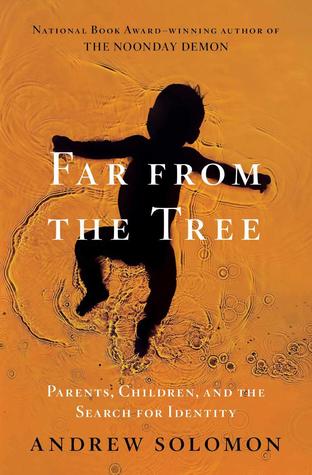More on this book
Community
Kindle Notes & Highlights
Read between
September 7 - December 18, 2019
There is no such thing as reproduction. When two people decide to have a baby, they engage in an act of production, and the widespread use of the word reproduction for this activity, with its implication that two people are but braiding themselves together,
Little is more gratifying than successful and devoted children, and few situations are worse than filial failure or rejection.
Though many of us take pride in how different we are from our parents, we are endlessly sad at how different our children are from us.
The exceptional is ubiquitous; to be entirely typical is the rare and lonely state.
Vertical identities are usually respected as identities; horizontal ones are often treated as flaws.
Many vertical identities make people uncomfortable, and yet we do not attempt to homogenize them.
We often use illness to disparage a way of being, and identity to validate that same way of being. This is a false dichotomy. In physics, the Copenhagen interpretation defines energy/matter as behaving sometimes like a wave and sometimes like a particle, which suggests that it is both, and posits that it is our human limitation to be unable to see both at the same time. The
Many conditions are both illness and identity, but we can see one only when we obscure the other. Identity politics refutes the idea of illness, while medicine shortchanges identity. Both are diminished by this narrowness. Physicists
Having exceptional children exaggerates parental tendencies; those who would be bad parents become awful parents, but those who would be good parents often become extraordinary.
To look deep into your child’s eyes and see in him both yourself and something utterly strange, and then to develop a zealous attachment to every aspect of him, is to achieve parenthood’s self-regarding, yet unselfish, abandon. It
That my favorite color is blue but I am still gay is evidence of both my mother’s influence and its limits.
Although I did not always feel approved of, I always felt acknowledged and was given the latitude of my eccentricity.
“Someday you can go to a therapist and tell him all about how your terrible mother ruined your life. But it will be your ruined life you’re talking about. So make a life for yourself in which you can feel happy, and in which you can love and be loved, because that’s what’s actually important.”
All people are both the objects and the perpetrators of prejudice.
Everyone is flawed and strange; most people are valiant, too.
The reasonable corollary to the queer experience is that everyone has a defect, that everyone has an identity, and that they are often one and the same.
In the gnostic gospel of St. Thomas, Jesus says, “If you bring forth what is within you, what is within you will save you. If you do not bring forth what is within you, what is within you will destroy you.”
40 percent of women who inflict death kill their own babies.
People who believe in the right to opt for healthy, normative children refer to selective abortion; people to whom that idea is anathema refer to commercial eugenics, evoking a world stripped of variety and vulnerability.
If you can figure out who you are, you can find other people who are the same.
There is no contradiction between loving someone and feeling burdened by that person; indeed, love tends to magnify the burden.
The disability rights movement seeks, at the most basic level, to find accommodation of difference rather than erasure of it.
scholars stress the separation between impairment, the organic consequence of a condition, and disability, the result of social context. Being unable to move your legs, for example, is an impairment, but being unable to enter the public library is a disability.
Ability is a tyranny of the majority.
The wish to fix people reflects pessimism about their condition and optimism about the method of repair.
Recent academic work suggests that people who know their condition to be irreversible are happier than those who believe their condition may be ameliorated. In such cases, ironically, hope may be the cornerstone of misery.


